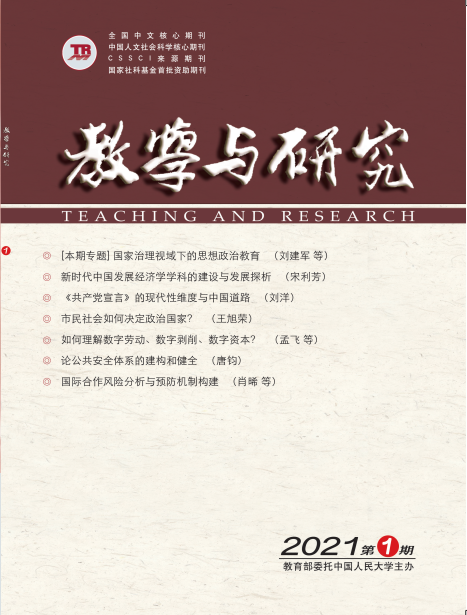|
|
Research on Construction and Improvement of Public Security System
Tang Jun
2021, 55 (1):
81-89.
The global public security system is generally faced with the common challenges of frequent emergency in dangerous state, the outofjurisdiction in normal state and recurring insecurity in future state. Under the systematic, stable and forwardlooking problem analysis perspective, the six elements of mission, tool, structure, function, attribute and path are extracted.Aiming at the triple goalsof dangerous state security, normal state security and future state security, static system construction must be carried out closely with these six elements: The first is the “foundation framework”, which compacts the “foundation” through missions and tools; the second is the “supporting framework”, which establishes the “pillar” through the structures and functions; the third is “extended architecture”, which “extends” the system through attributes and paths. On this basis, contingency orientation should be adopted and sustainable dynamic sound ways of implementing the public security system should be selected flexibly by stages, levels and focuses so as to accelerate the realization of these three goals.Firstly, to improve dangerous state security in “reinforcing plate” way, it's needed to integrate the highrisk response mechanism,to combine the prevention and control mechanism and to joint the risk correction mechanism. Secondly, to improve normal state security in “optimizing system” way, it's needed to establish the preventive and warning mechanism, to build the responsibility implementation mechanism and to innovate the intelligent riskcontrol mechanism. Finally, to improve future state security “developmental” way, it's needed to strengthen the emergency learning mechanism, to optimize the performanceoriented mechanism, and to incubate the social consciousness mechanism.
Related Articles |
Metrics
|



